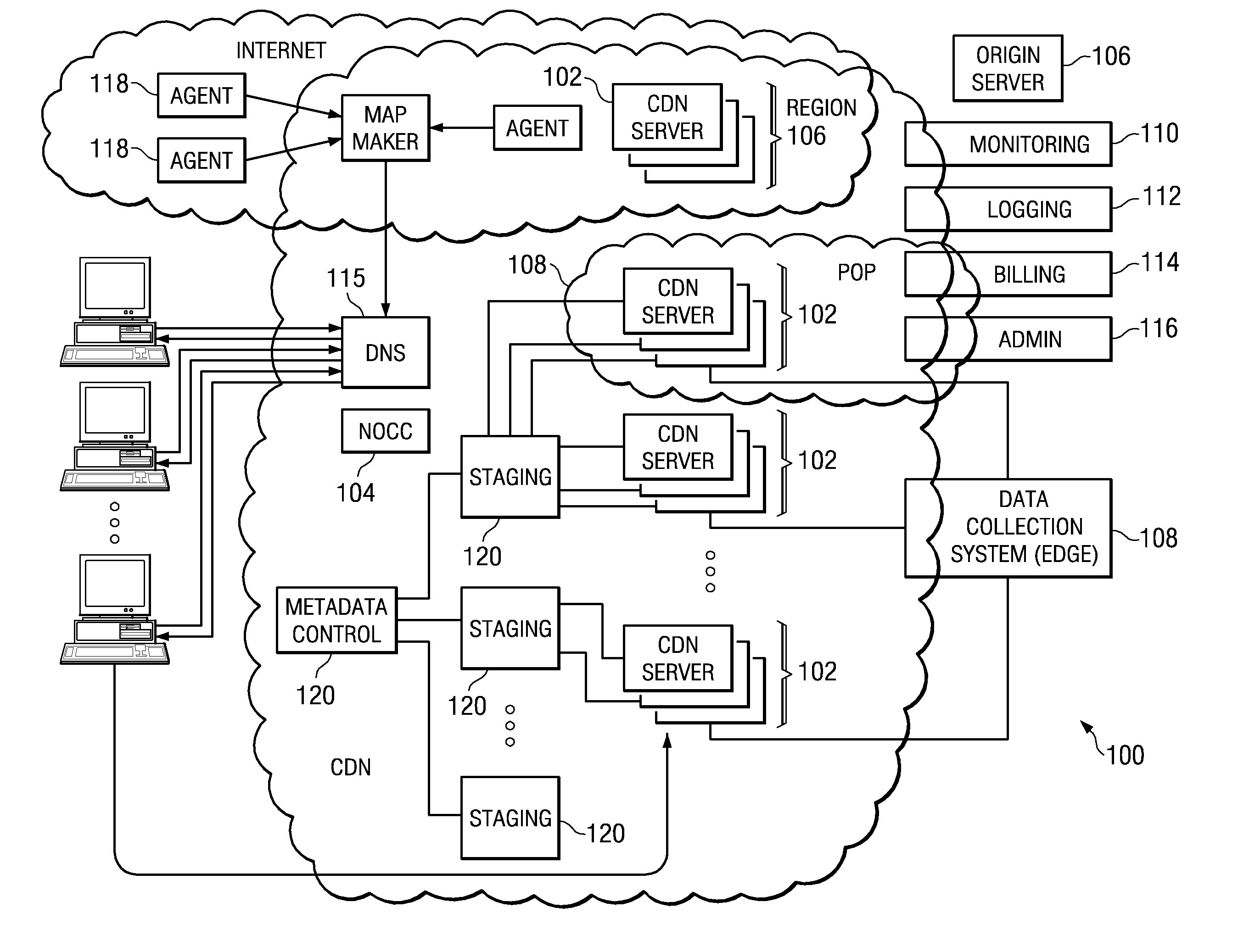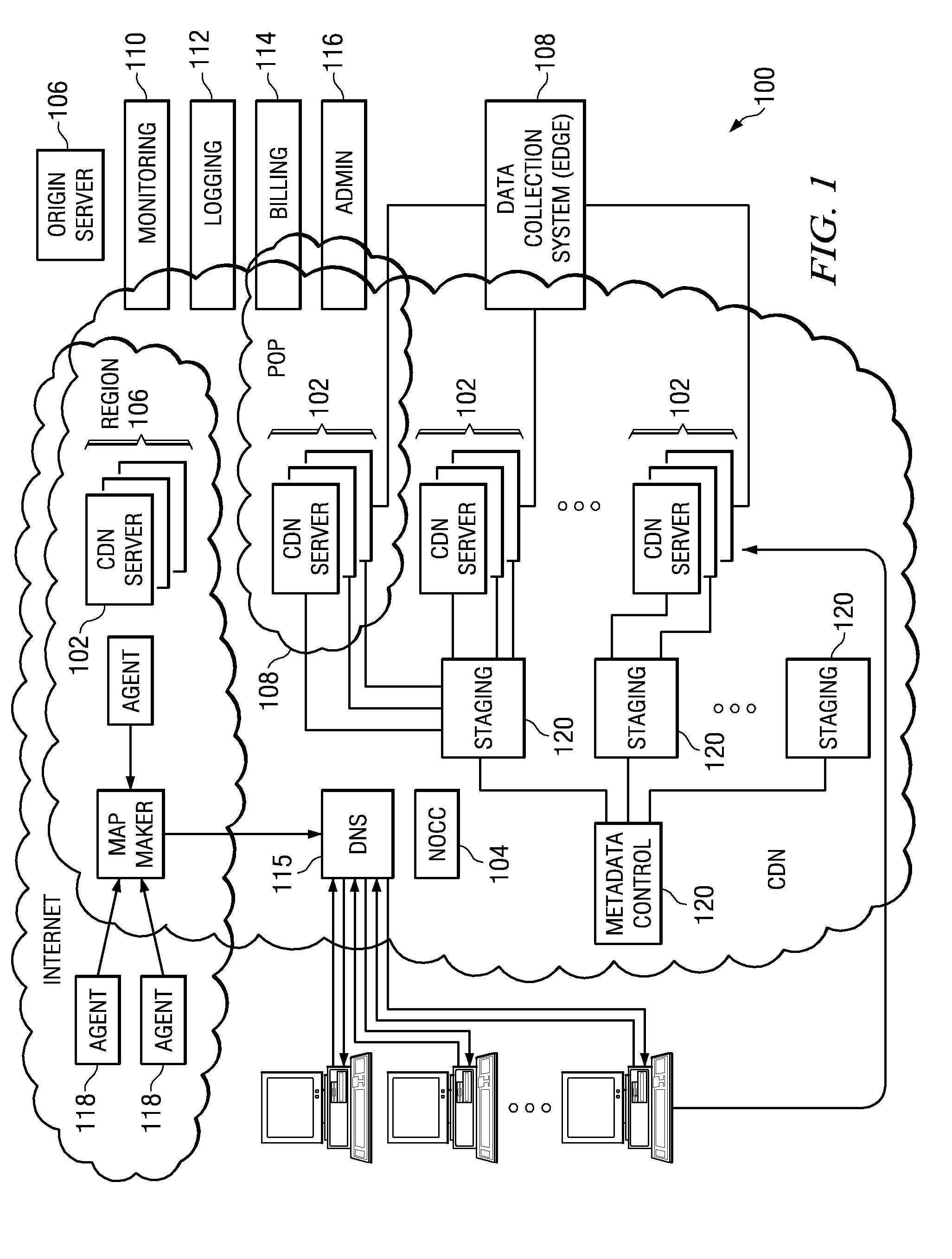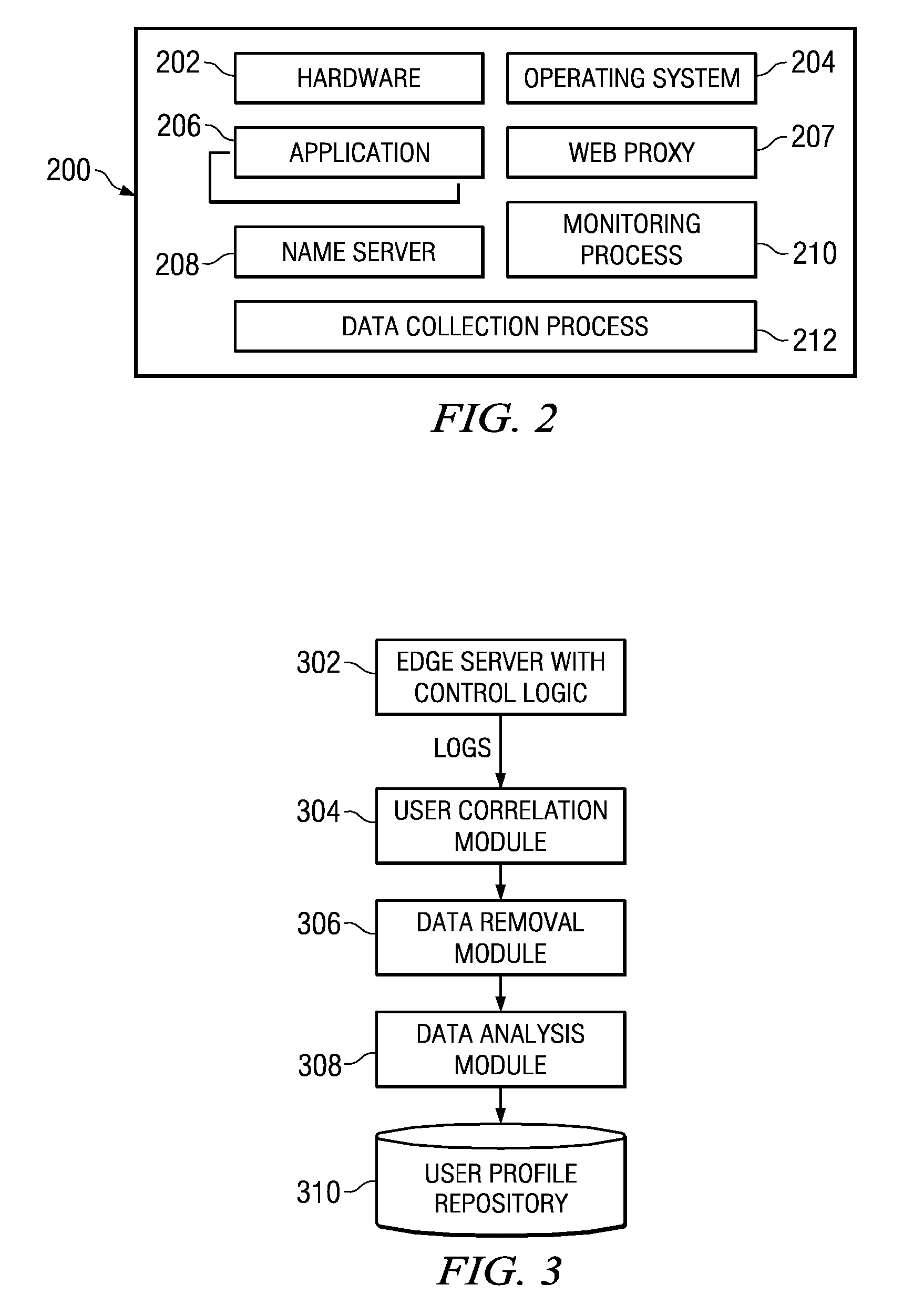Method of data collection among participating content providers in a distributed network
a data collection and content technology, applied in the field of data collection in distributed networks, can solve the problem that the user agent cannot be associated with a human user, and achieve the effect of facilitating the mitigation of bot and other site fraud
- Summary
- Abstract
- Description
- Claims
- Application Information
AI Technical Summary
Benefits of technology
Problems solved by technology
Method used
Image
Examples
Embodiment Construction
[0026] The subject matter described herein may be implemented in a content delivery network, such as illustrated in FIGS. 1 and 2. Use in a CDN is a not a limitation, however, as the subject matter may be implemented in any environment in which one entity operates a distributed network from which third party content is distributed.
[0027] In a representative embodiment, a distributed computer system 100 is configured as a CDN and is assumed to have a set of machines 102a-n distributed around the Internet. Typically, most of the machines are servers located near the edge of the Internet, i.e., at or adjacent end user access networks. A Network Operations Command Center (NOCC) 104 may be used to administer and manage operations of the various machines in the system. Third party sites, such as Web site 106, offload delivery of content (e.g., HTML, embedded page objects, streaming media, software downloads, and the like) to the distributed computer system 100 and, in particular, to “edg...
PUM
 Login to View More
Login to View More Abstract
Description
Claims
Application Information
 Login to View More
Login to View More - R&D
- Intellectual Property
- Life Sciences
- Materials
- Tech Scout
- Unparalleled Data Quality
- Higher Quality Content
- 60% Fewer Hallucinations
Browse by: Latest US Patents, China's latest patents, Technical Efficacy Thesaurus, Application Domain, Technology Topic, Popular Technical Reports.
© 2025 PatSnap. All rights reserved.Legal|Privacy policy|Modern Slavery Act Transparency Statement|Sitemap|About US| Contact US: help@patsnap.com



